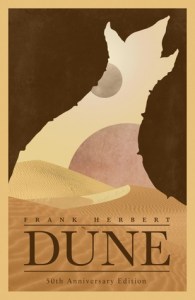Shelf Control #86 – 07/03/2025
Good evening and welcome to today’s Shelf Control feature. It’s been a few weeks since I’ve shared one of these posts. But, I’m back and happy to share a science-fiction book I’ve picked up before and I’m looking forward to returning to. Before I get into the details, here’s a recap of what Shelf Control is all about.
Shelf Control is a meme run by Lisa at Bookshelf Fantasies. It’s a celebration of the unread books on our shelves! The idea is to pick a book you own but haven’t read and write a post about it (suggestions: include what it’s about, why you want to read it, and when you got it), and link up.
If you want to read more about the Shelf Control feature, check out Lisa’s introductory post.
In today’s post, I feature a book I started but put down a few years ago. I enjoyed the first book in the series, but I was struggling with longer books at the time. I had started the second book in the series, but ultimately decided to ‘temporarily’ put it down in favour of other books.
Howling Dark – Christopher Ruocchio
 Genre: Science-fiction
Genre: Science-fiction
Pages: 688
Audience: Adult
Publisher: Gollancz
Publication Date: 23 Jul 2019
The second novel of the galaxy-spanning Sun Eater series merges the best of space opera and epic fantasy, as Hadrian Marlowe continues down a path that can only end in fire.
Hadrian Marlowe is lost.
For half a century, he has searched the farther suns for the lost planet of Vorgossos, hoping to find a way to contact the elusive alien Cielcin. He has not succeeded, and for years has wandered among the barbarian Normans as captain of a band of mercenaries.
Determined to make peace and bring an end to nearly four hundred years of war, Hadrian must venture beyond the security of the Sollan Empire and among the Extrasolarians who dwell between the stars. There, he will face not only the aliens he has come to offer peace, but contend with creatures that once were human, with traitors in his midst, and with a meeting that will bring him face to face with no less than the oldest enemy of mankind.
If he succeeds, he will usher in a peace unlike any in recorded history. If he fails…the galaxy will burn.
My Thoughts
It’s been a few years since I put this down, so the break between stopping this book and my intended restart date has been a little longer than the ‘temporary’ break planned. Admittedly, I’m going to benefit from a recap of the first book’s events, or a reread, to get back into the series.
What also excites me about this book is that it’s a relatively new author to me. I’ve only read the first book of the series, and since I started it with the proof I got from Gollancz years ago, the series has expanded. It’s nowadays total of six primary works- and there’s a final seventh coming up. There are also side stories along the way, so there’s plenty for me to get stuck into!
I enjoy the science-fiction genre. In a slight twist, this series is marketed as a space opera. If I recall correctly, there is a lot of drama, tension, and action to keep me engaged throughout this now epic series.
An additional bonus is that I already have a copy of this second book on my shelf waiting to be picked up. Fingers crossed, it’s not too long before I get there.
Thanks for reading today’s Shelf Control post! Does Howling Dark appeal to you?






 Karl Drinkwater is an author with a silly name and a thousand-mile stare. He writes dystopian space opera, dark suspense and diverse social fiction. If you want compelling stories and characters worth caring about, then you’re in the right place. Welcome!
Karl Drinkwater is an author with a silly name and a thousand-mile stare. He writes dystopian space opera, dark suspense and diverse social fiction. If you want compelling stories and characters worth caring about, then you’re in the right place. Welcome!

 Genre: Science-fiction
Genre: Science-fiction



 Top 1% in Epic
Top 1% in Epic